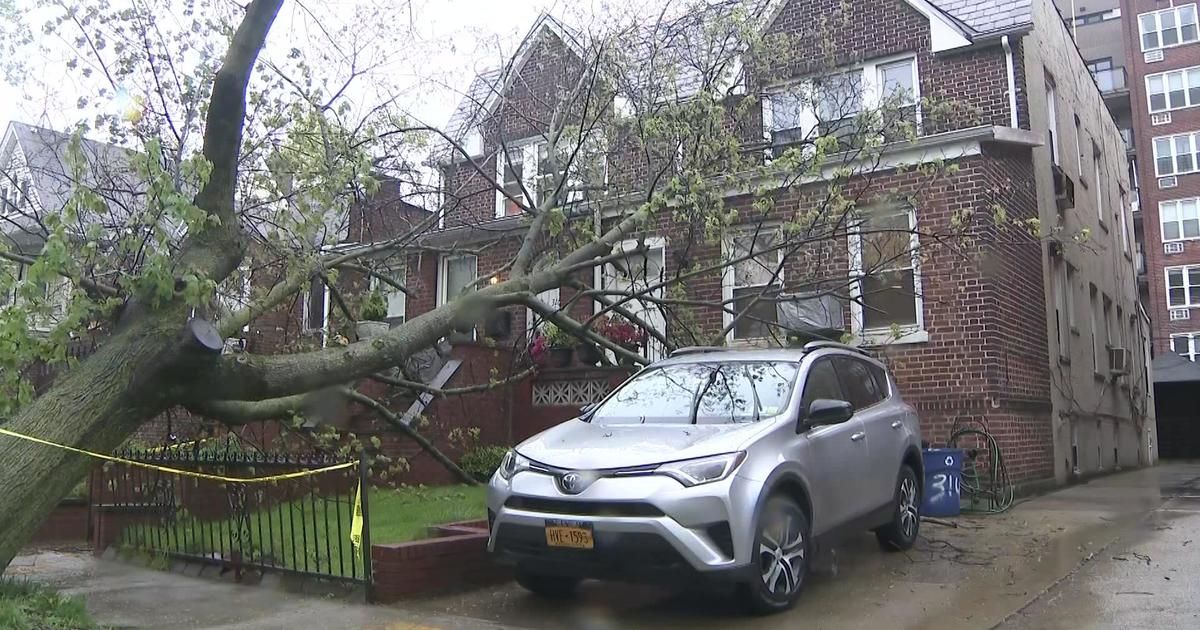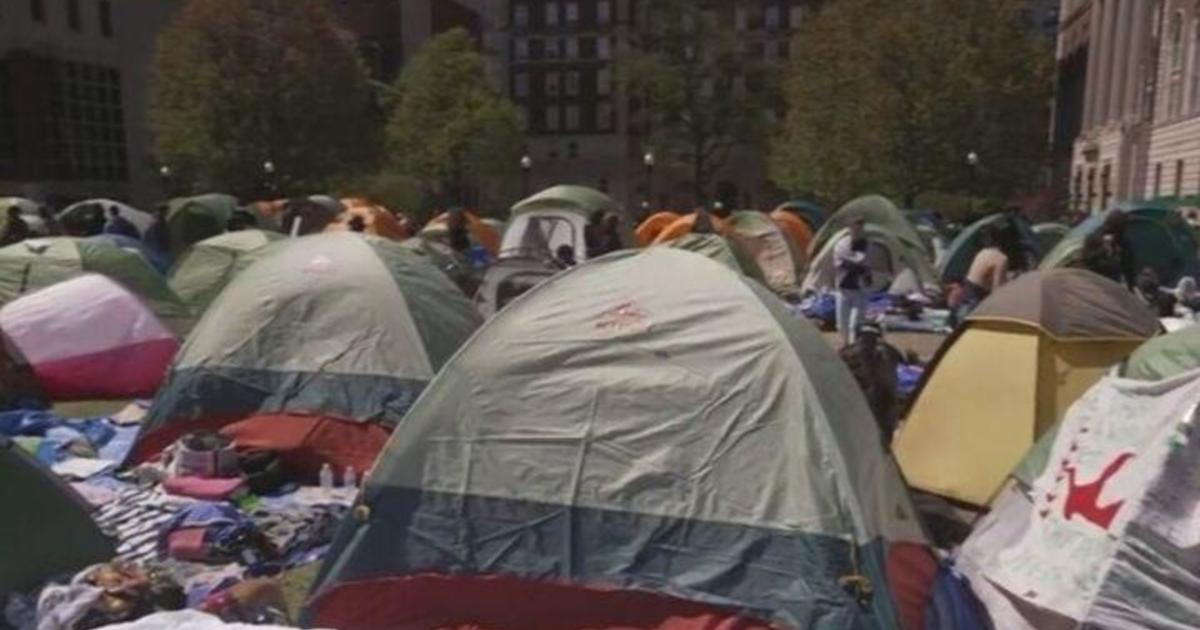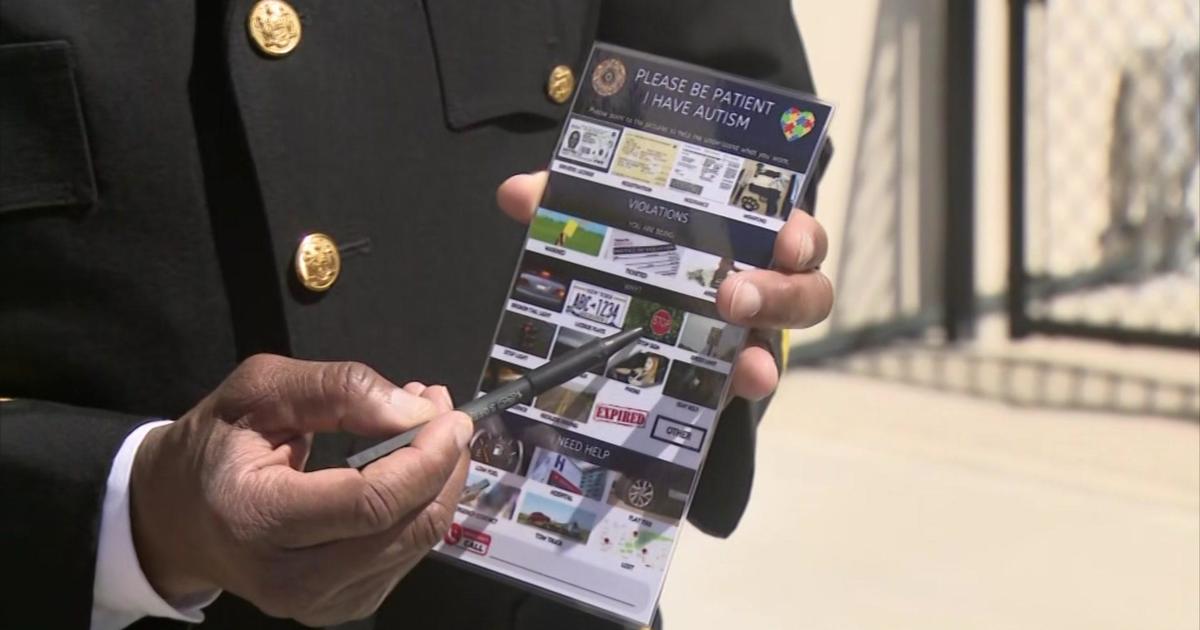Staying In Irma's Path? Here's What You Should Know
NEW YORK (CBSNewYork/CBSMiami) -- Do you know people who stayed in Florida during Hurricane Irma? Here's list of tips, contact resources and phone numbers you'll want to make note of into this weekend.
PLAN TO KEEP IN TOUCH: FEMA has a family communication plan guide which recommends creating paper copies of contact information for families and important services such as doctors, school and medical facilities. Specific checklists of such guides can be found at ready.gov/make-a-plan.
FEMA also recommends people name an out-of-town contact to serve as a central point of contact for their house. Families should also identify one out-of-town meeting place in case they become separated or cannot return home.
Separately, if you are in contact with friends or loved ones the areas projected to be hit by the hurricane and they - or you - are willing to speak with us about their experience, let us know with a direct message to us via Facebook.
PREPARING TO STAY PUT: The reporters at Miami CBS station WFOR-TV have been through many hurricanes before and put together a list of tips to share with those in harm's way.
1) Fill up the tub with water. You won't be drinking out of a tub, but the water can be used to flush a toilet rather than using your drinking water. Do this as the storm approaches.
2) Empty your ice bin into freezer Ziploc bags and make more ice. Ice is about to become a premium.
3) Use water from the tap as long as you can. If you must use bottles, keep them and refill them. After the storm assume tap water is not safe to drink.
4) Turn up your freezer and fridge to the coldest settings. Avoid opening them as much as possible.
5) Cook your perishable foods such as meats and vegatables before the storm hits. Put them in the fridge and plan on those being your first meals after the storm. Save the non-perishables for Day 2 on.
6) Pack essential supplies in a central spot in your home. Do not use cardboard boxes, but instead rely on sturdy (non-paper) bags and plastic containers. What's an essential supply? Food, water, batteries, flashlights, car/wall chargers.
7) Have two exits from your home. Hopefully the storm shutters are up. In case of an emergency such as a fire you do not want to trap yourself in your own home. Leave two doors uncovered to exit from.
8) Get the battery-powered radio ready. DirecTV/DISH will go first, power outage will take cable with it. Cellphone service will likely fail. Local news stations such as WFOR-TV CBS4 have agreements to simulcast on the radio. It will be local residents best source of information on what is happening as it happens.
KNOW WHO TO CALL: Also make note of important phone numbers for Florida emergency services:
Florida's Emergency line: 1-800-342-3557
Veterans Who Need Assistance: 1-800-507-4571.
Traffic Information: Download the Florida 511 Traveler Information App
RELIEF AID AFTER THE STORM: As the devastation in Texas after Hurricane Harvey showed the need for help, people in effected areas will turn to emergency services to recover. Consider donating to any of these organizations that are helping to raise money for aid and services in the wake of the disaster.
The American Red Cross set up a page for hurricane relief donations. The organization plans to provide shelters, supplies, and volunteers on the ground.
The Salvation Army has an Emergency Disaster Services arm that is taking donations to help storm victims.
TRACK THE STORM: CBSNewYork.com will have continuing coverage of the storm on our website, as well as on our Facebook page.
For a live look at current conditions from Miami Beach, you can also check out these webcams.



